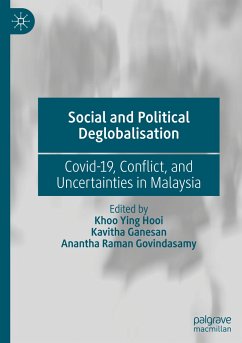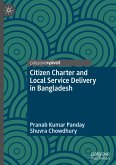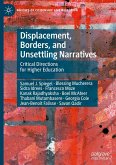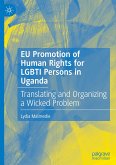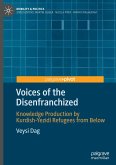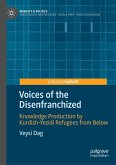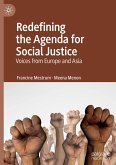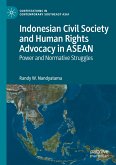This book focuses on the discourse of de-globalisation in Malaysia by looking at the implications of this process politically, economically, socially, and environmentally.
The rise of right-wing political parties and a decline in global economic interdependence have rapidly fuelled the de-globalisation process by creating conflicts and uncertainties in many parts of the world. The battle against the Covid-19 pandemic has spurred a great challenge among the global community, thus becoming a catalyst in the de-globalising process worldwide. While there have been contested opinions on whether we are now in the temporary phase of de-globalisation, what is clear is that the pandemic adds momentum to the trend. Now that the world has entered the post-Covid-19 phase, is the discourse of de-globalisation still relevant?
Since the emergence of this pandemic, Malaysia has been facing not only a change of government but also a rapid decline in its economy, a rise in unemployment and living costs, with the human rights situation deteriorating as the State of Emergency was imposed. All of these add up to a shift toward de-globalisation. Chapters in this book, therefore, engage with this issue from different perspectives, such as conventional warfare, bio-constitutional implications to the right to health, labour, migrants and refugees, digital education, indigenous people and so forth.
The rise of right-wing political parties and a decline in global economic interdependence have rapidly fuelled the de-globalisation process by creating conflicts and uncertainties in many parts of the world. The battle against the Covid-19 pandemic has spurred a great challenge among the global community, thus becoming a catalyst in the de-globalising process worldwide. While there have been contested opinions on whether we are now in the temporary phase of de-globalisation, what is clear is that the pandemic adds momentum to the trend. Now that the world has entered the post-Covid-19 phase, is the discourse of de-globalisation still relevant?
Since the emergence of this pandemic, Malaysia has been facing not only a change of government but also a rapid decline in its economy, a rise in unemployment and living costs, with the human rights situation deteriorating as the State of Emergency was imposed. All of these add up to a shift toward de-globalisation. Chapters in this book, therefore, engage with this issue from different perspectives, such as conventional warfare, bio-constitutional implications to the right to health, labour, migrants and refugees, digital education, indigenous people and so forth.

